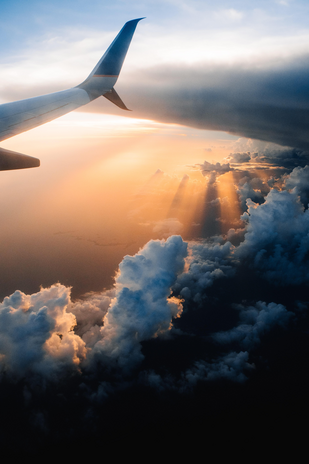The routine introductory question, “where are you from?” causes way more stress than it probably should when it’s my turn to speak. “Well, um, I was born and raised in Japan,” I reply every time.
No, I’m not lying.
Yes, I’m American.
No, I didn’t want to go to college in Japan.
Yes, I’m technically a Florida resident.
No, I’m actually not fluent in Japanese.
These are some of the answers to the most frequent questions that come to mind when people meet me. Here’s the situation: my parents work as teachers for the Department of Defense and moved to Japan almost 30 years ago to teach military dependents. I was born on a military base in Okinawa, Japan (which technically counts as American soil).
I didn’t think much of it because it was simply my life. There were other kids like me who had been born in Okinawa and around the world. My school was a conglomerate of cultures and backgrounds. The military is such a diverse community so it neutralized the idea that I was any more cultured than someone else.
I lived off-base for the first three years of my life, lived on-base for five and then off-base until I moved here to Florida State University. That’s really what separates me from other kids in a military community. Most of the time they live on base and move to a new base every three years, having a little taste of each place they go. Okinawa is my home, born and bred, but there’s no way I can consider myself Japanese.
There’s this cognitive dissonance about being from another country, but still holding an American identity. I reap full benefits of being an American citizen. I could even run for president down the line if I wanted to. But I do not identify with the American philosophy and way of life. When I came to Tallahassee last fall as a freshman, I entered a state of culture shock.
There were stores, restaurants and formalities that I was apparently supposed to know of being an American. Tipping isn’t a thing in Japan, so you can probably gather that I had a lot of problems my first year here. I understood that at restaurants it’s customary to tip 15 percent, but there are so many other things you have to do it for! Delivery people, hair salons, you name it. I was clueless.
To that extent, growing up in Japan caused some problems, but it also provided me with an unmatched level of appreciation for the world and other cultures. While I lived in Okinawa I traveled throughout the Pacific making stops to Australia, New Zealand, Hong Kong, China, Korea, Thailand and Vietnam.
When I hear about all the International Program opportunities here at FSU I try to persuade people to go for it. While I haven’t been to England, Panama, Spain or Italy, I’ve traveled and understand how irreplaceable the experience is. America is a bubble where we think that our way is supreme and our customs and history are best. I mean, why do you think there are so many “Murica” memes? Once you escape the bubble and explore different cultures, your outlook on life will shift. I love FSU but I also love my tiny island of Okinawa. Although your perspective shifts when you’ve lived outside the U.S., you don’t decide that one is ultimately better than the other. The world is great and you need to go out there and explore it.
I’m exploring it right now, here in Tallahassee.


